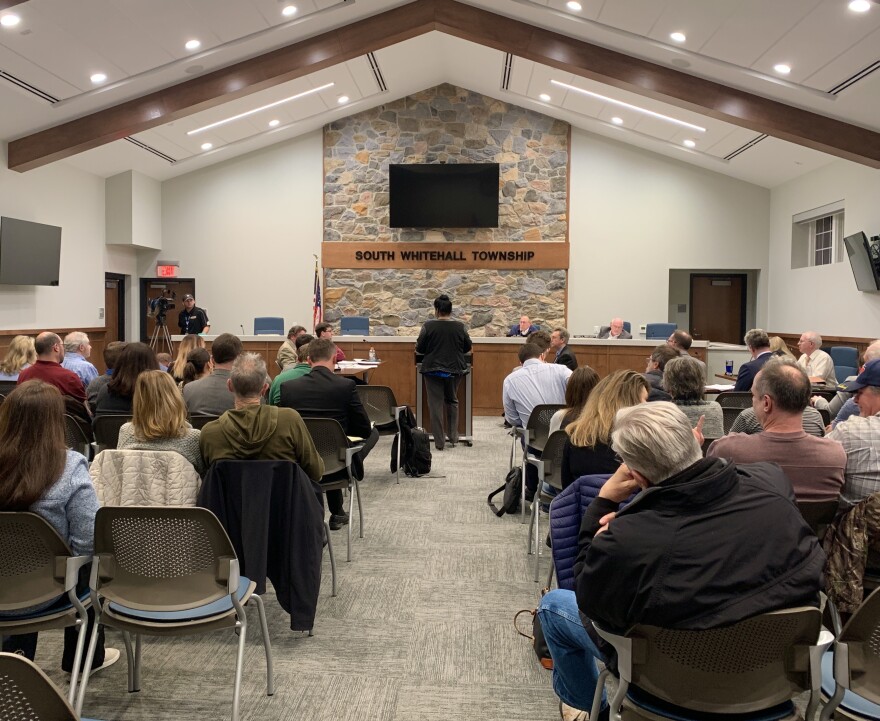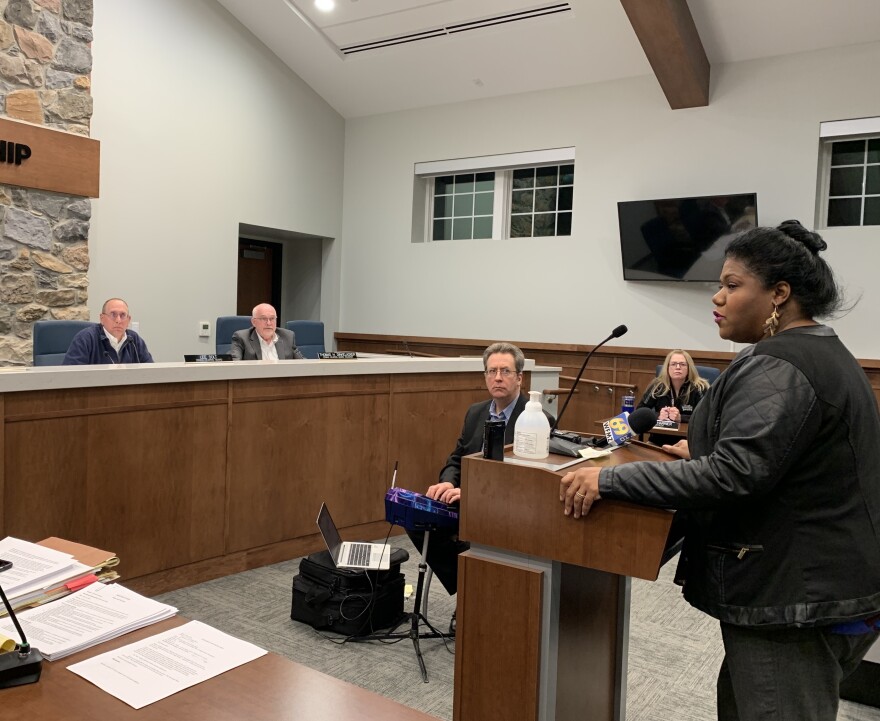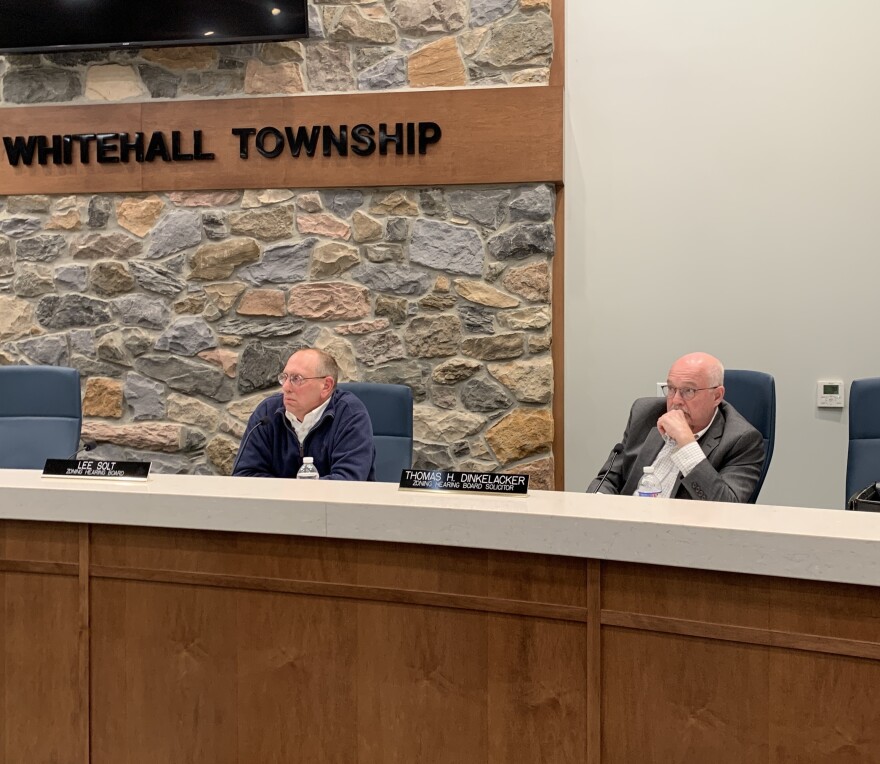SOUTH WHITEHALL TWP., Pa. — The debate over whether to locate a proposed drug and alcohol recovery house near Cetronia Elementary continued Thursday, with witnesses testifying in favor of the facility.
South Whitehall Township Zoning Hearing Board heard testimony from two witnesses at the board’s latest hearing about whether township zoning laws would allow the facility.
- Two witnesses spoke in favor of a proposed drug and alcohol recovery house near Cetronia Elementary School
- Both spoke about the need for these kinds of facilities, which are for sober people transitioning out of in-patient rehab
- The proposal has been controversial amongst residents because of its proximity to an elementary school
“We need this,” said Julissa Pena, speaking for applicant Moyer Construction LLC. “We don't have anything like this around here.”
The proposed recovery house is controversial because it would be at 3599 Broadway, near Cetronia Elementary School.
The location used to be Trexler Park Manor, an assisted-living facility that closed in 2014. It's been vacant since.
About 40 people attended the meeting. At times, audience members interrupted testimony, protesting what witnesses said.

Township zoning laws that cover the property allow for an assisted living facility, and Moyer Construction LLC argues that a recovery house is sufficiently similar in character to an assisted living facility.
Recovery houses are privately owned homes for people recovering from drug or alcohol addiction — typically for people exiting drug rehabilitation programs. The facilities typically have a sobriety requirement. They can be certified by the state, but that's not required for them to be certified to operate.
Zoning hearings function like a court, with opening statements, sworn witnesses called to testify and cross-examinations.
Zoning Hearing Board Member Lee Solt presided over the meeting as the hearing officer — a change that was decided at an earlier Zoning Hearing Board meeting because of issues meeting a quorum.
First witness testimony
The lawyer for Moyer Construction, Nicholas Sabatine III, first called Pena to the stand. Pena works for an inpatient rehab center run through Pyramid Healthcare in Quakertown, but said she was speaking as a resident, not on behalf of the company.

Pena referred to the proposed facility as a recovery house throughout her testimony. Eric Moyer of Moyer Construction LLC and his lawyer previously referred to the facility as a “sober living residence” in the filings to the board.
But Pena said in her testimony the facility would be best described as a recovery house because, unlike sober living residences, it would allow certain drugs meant to help with recovery.
"There's as much effort being made to get the drugs out there as to keep them also on the down-low, very silenced, so no one really can tell. And they're attacking our young population.”Julissa Pena, a witness for the applicant Moyer Construction LLC
Pena spoke about how helpful recovery homes are for people coming out of rehab. She said Parkland specifically needs recovery homes because she has heard there's a proliferation of drug use in the area.
“And we shouldn't blame ourselves because of this, because it's a war,” Pena said. “You have to understand it — there's as much effort being made to get the drugs out there as to keep them also on the down-low, very silenced, so no one really can tell. And they're attacking our young population.”
During cross-examination, Pena said recovery houses are not like assisted living facilities because they don’t require medical or clinical staff to be available at all times.
“It's a home," she said. "It’s just a place for them to live and become and feel dignified again. That's all. It's just a place for them to be part of the community, a nice place to share their experiences, to grow.”
Second witness testimony
The second witness was Jeremy Rios, co-owner of Rios Recovery, which operates several recovery homes in Allentown and Bethlehem.
Rios Recovery would operate the proposed facility.
Rios explained the screening process for potential residents of his recovery houses: They have to have gone through treatment, want to continue treatment, be free of withdrawal symptoms and have not committed violent felonies or crimes against children.
Rios said he has children, so he understands the skepticism about the recovery house being near an elementary school. But he said he wants his recovery house to be in a drug-free area, like a school zone, since the residents will be sober.
“I think the idea is, ‘Oh my God, you're putting a bunch of druggies in our neighborhood,’" Rios said. "And that's just not the case."
Rios said one of the recovery houses he operates is near an elementary school, and there have been no issues.
During cross-examination, Parkland School District lawyer Matthew Deschler brought up Rios’s criminal history, which Rios admitted was “extensive.” But Zoning Hearing Board solicitor Thomas Dinkelacker ruled it was irrelevant to the hearing.

Resident controversy
There was controversy on social media surrounding the location of the proposed sober living facility when the issue first came before the Zoning Hearing Board. A Facebook post about it was shared more than 50 times.
The comments included residents who opposed the construction of the facility because of its location near the school. Others supported it, saying sober living facilities are needed in the area.


